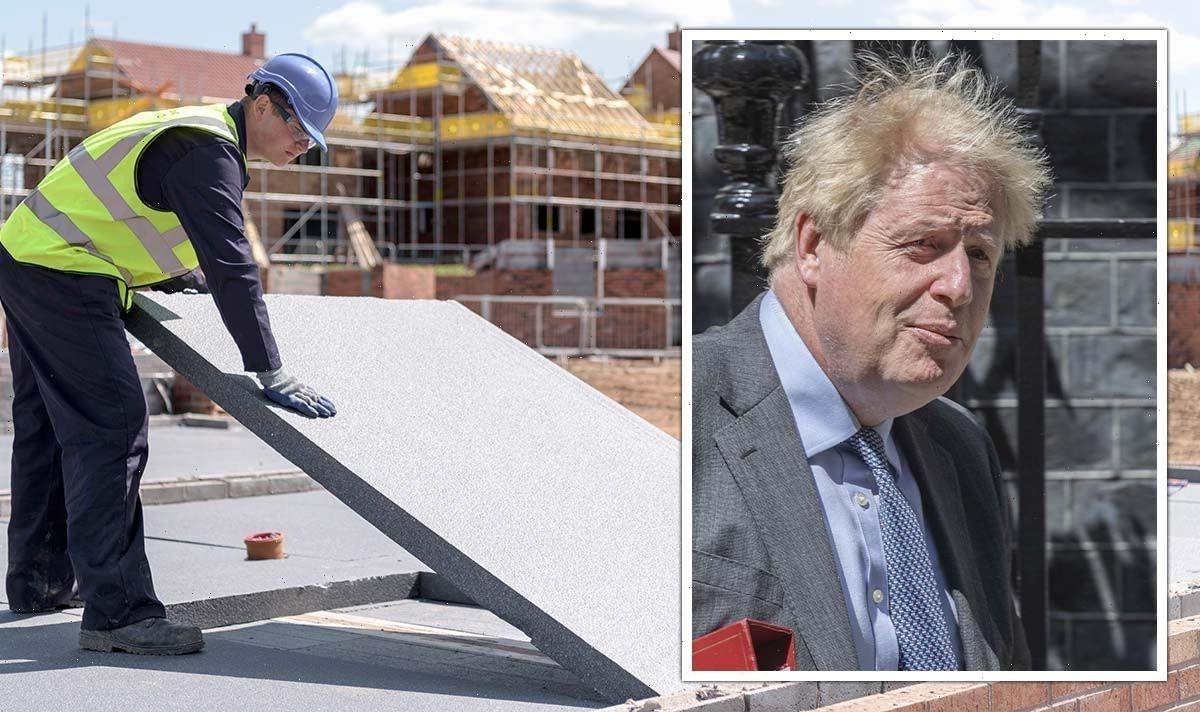Naga Munchetty skewers chief of Ofgem over energy costs
We use your sign-up to provide content in ways you’ve consented to and to improve our understanding of you. This may include adverts from us and 3rd parties based on our understanding. You can unsubscribe at any time. More info
As energy bills continue to soar for millions of Britons due to the spiralling global cost of gas, alternative methods to keep homes warm could prove vital. This is why the Government is reportedly considering offering insulation to thousands of homes before winter thanks to a huge £1billion investment which will be funded by diverting money from existing schemes.
David Weatherall, a consultant from BRE, told Express.co.uk: “We strongly welcome the plan to invest funding into energy saving in homes, and support the approach the government is planning to take – increasing the scale of the existing Energy Company Obligation programme which has been running successfully for many years.”
And he pointed out the huge lifeline insulation could hand households facing staggering bill rises.
Mr Weatherall said: “The Energy Saving Trust estimates that insulating just the walls of a detached house will save £430-£650 a year.
“And if roofs, floors and windows are insulated at the same time, the savings will obviously be higher.
“Some families have a greater need for heating – for example older people are often at home all day, and people with health problems may need to keep their home particularly warm.


“The more heating a family needs the more they will benefit from insulation.”
This comes after industry regulator Ofgem announced that the price cap (maximum annual tariff) es expected to soar to £2,800 in April.
This could push millions more Britons into fuel poverty at a time when inflation is reaching record highs, sparking a cost-of-living crisis.
That is why it is crucial the Government provides assistance to help the poorest households insulate their homes.
Mr Weatherall said: ”The upfront costs of insulation – though it saves money from day one on energy bills – can put it out-of-reach of low-income households.

“That’s why it’s important that the government provides support with the upfront costs.”
He explained: “The Energy Saving Trust states that costs can range up to £650 for loft/roof insulation.
“For homes, a key factor is the wall construction: many homes built from around 1920-1990 still have uninsulated cavity walls that can be relatively easily and cheaply filled with insulation.
“Older homes built before around 1920 have solid walls where insulation needs to be fixed to the inside or outside of the wall – that’s a more expensive process, usually costing several thousand pounds, but delivering big savings on bills.
“A lot of heat is lost through windows and double glazing is a type of insulation. Few homes now have entirely single glazing. It’s good to check that all windows, whether single or double-glazed, are working properly and don’t have draughts.
DON’T MISS
HS2 archaeologists blown away by ‘stunning’ Anglo-Saxon finds [REPORT]
Russian commanders go rogue as humiliating demise exposed [REVEAL]
Putin’s blow to EU sanction plans as gas deliveries to China soar 67% [INSIGHT]


“For homes that do still have single glazing, if double glazing is too costly, then fitting secondary glazing on the inside of window frames can be a good step to reduce heat loss and bills.”
The proposed programme for insulation has been dubbed the “Great British Insulation Scheme”, and will see the Government top up the “energy company obligation”.
This is levied from bills and used to fund energy-efficiency measures for poorer households.
The scheme could be expanded to support a larger number of households, even in the middle-income range, if people are willing to make a contribution.
And while BRE welcomes the Government announcement, Mr Weatherall warned: “But we don’t believe this should be funded by cutting other energy saving programmes which are having a positive impact.”
Source: Read Full Article
